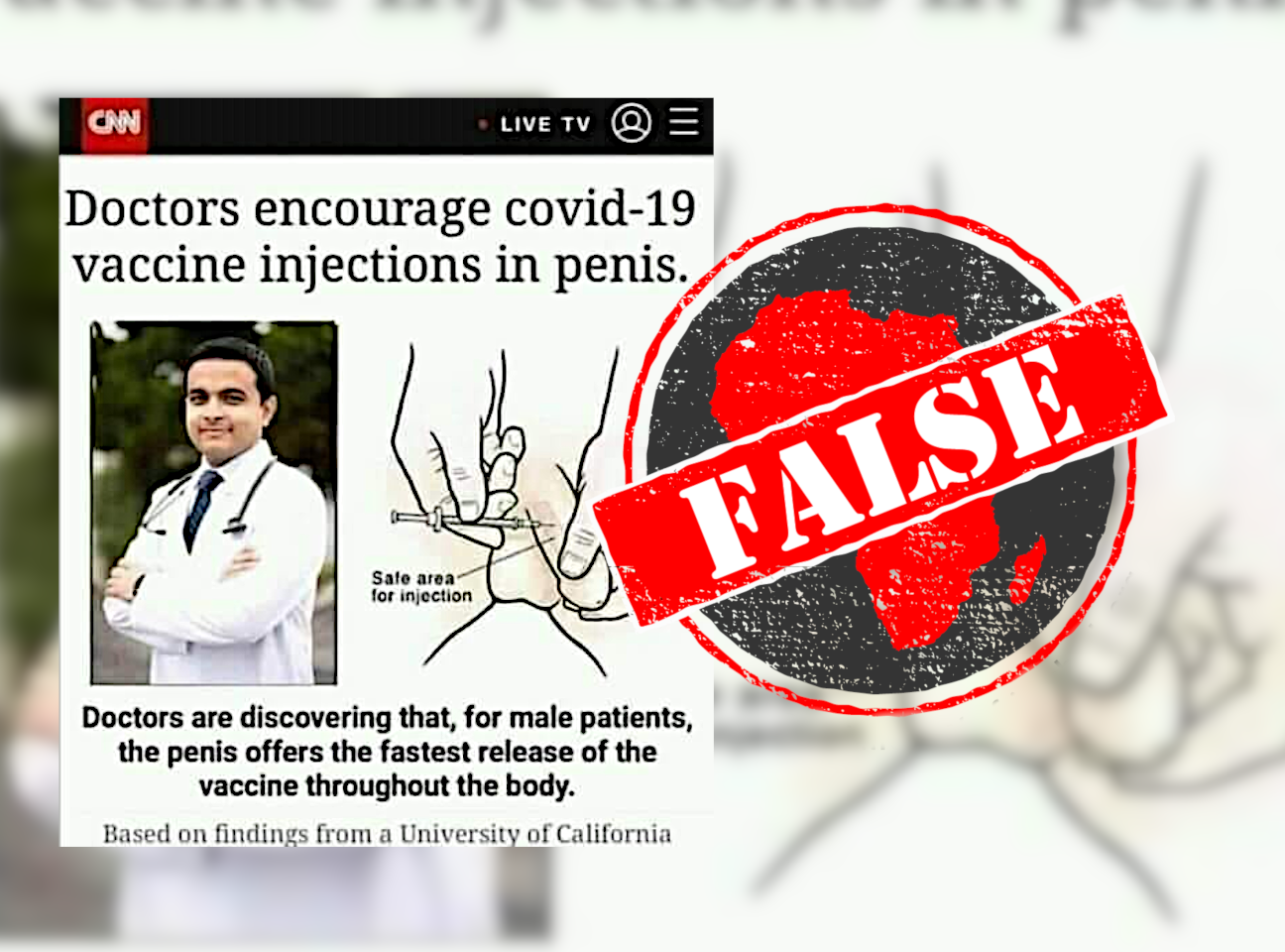As Covid-19 vaccines are being rolled out in several countries, a screenshot of what seems to be an article with a startling headline is flooding social media. “Doctors encourage Covid-19 vaccine injections in penis,” its headline reads.
Below a photo of a man in doctor’s whites and a line drawing of male genitals showing the “safe area for injection”, the subheading is: “Doctors are discovering that, for male patients, the penis offers the fastest release of the vaccine throughout the body.”
The screenshot carries the logo of the US-based TV news network CNN, and has been shared widely on Twitter and Facebook.
But did CNN really publish such an article?
‘Completely fake’
A search of CNN for articles about the Covid-19 vaccine does not lead to anything like the story shared on social media.
We could find no trustworthy sources that recommended a Covid-19 vaccines be injected into the penis. The vaccines currently available should be injected intramuscularly, into the deltoid muscle of the upper arm. These are the specific recommendations of the vaccine manufacturers.
The only accurate element of the screenshot is the man pictured. He is a real doctor, but has made no public recommendations for where to inject the Covid-19 vaccine. It appears Dr Mohit Ardeshana’s photo was copied from a medical webpage, to lend credibility to the falsified CNN article.
Ardeshana works at Claremont Medical Center in the US state of California and told the news site BOOM: “The article is completely fake. I have not said anything about such a study. It is a work of mischief by someone.”
Republish our content for free
For publishers: what to do if your post is rated false
A fact-checker has rated your Facebook or Instagram post as “false”, “altered”, “partly false” or “missing context”. This could have serious consequences. What do you do?
Click on our guide for the steps you should follow.
Publishers guideAfrica Check teams up with Facebook
Africa Check is a partner in Meta's third-party fact-checking programme to help stop the spread of false information on social media.
The content we rate as “false” will be downgraded on Facebook and Instagram. This means fewer people will see it.
You can also help identify false information on Facebook. This guide explains how.





Add new comment